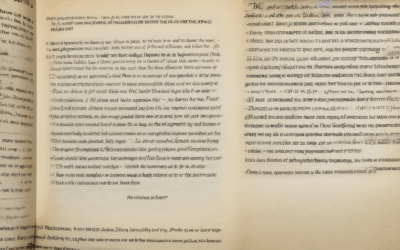Emotional resilience is often described as the ability to navigate life’s challenges with strength and poise, but building this capacity can feel daunting. However, writing emerges as a powerful tool to ignite and strengthen your emotional resilience, offering a therapeutic outlet and a means to process complex emotions. By expressing your thoughts on paper, you unlock a deeper understanding of yourself, fostering self-awareness and providing a safe space for reflection. This practice not only helps manage stress but also enhances your ability to cope with grief, loss, and other life events. Writing becomes more than just a hobby—it becomes a catalyst for personal growth, enabling you to approach challenges with clarity and confidence. As you delve into the therapeutic aspect of writing, you’ll discover its profound impact on your emotional well-being and how it serves as a cornerstone for building resilience.
Key Takeaways
- Harness Writing for Emotional Release: Journaling helps in processing emotions and reducing their intensity.
- Enhance Self-Awareness: Through introspection, understand your thoughts and reactions.
- Build Resilience Through Reflection: Track progress and identify strengths for recovery.
- Strengthen Coping Skills: Writing as a tool to manage stress and anxiety effectively.
- Foster Social Connections: Sharing stories builds community and reduces isolation.
- Improve Problem Solving: Writing clarifies thoughts, aiding in overcoming challenges.
- Develop a Positive Identity: Documenting growth boosts self-worth and resilience.
- Promote Mental Well-being: Creative outlets like writing reduce stress and improve mood.

How Can Writing Help Build Emotional Resilience?
Writing serves as a powerful tool for fostering emotional resilience by providing a safe space for self-expression and reflection. Here’s how it contributes to building mental strength:
- Expressing Emotions:** Writing allows individuals to articulate complex emotions, reducing the burden of holding them inward. This process can lead to better understanding and management of emotional states.
- Processing Life Events:** Journaling helps individuals process challenging life events, offering a therapeutic outlet that promotes emotional release and healing.
- Built Self-Awareness:** Through written words, people gain deeper insight into their thoughts, feelings, and reactions, enhancing their ability to navigate emotional challenges with greater awareness.
- Building a Positive Mindset:** Writing about personal growth and achievements can boost confidence and resilience, fostering a more optimistic outlook on life.
- Stress Relief:** Engaging in creative activities like writing can reduce stress, contributing to overall emotional well-being and resilience.
On Peter Spirito , we explore the transformative power of storytelling and reflective writing to connect with our inner selves and the world around us. By sharing our stories, we not only build emotional resilience but also cultivate empathy and understanding.
Exploring similar topics on platforms like Medium and HubSpot can offer additional insights into the role of writing in emotional growth and personal development.
What Are the Benefits of Writing on Emotional Resilience?
I’ve discovered that writing about emotional resilience offers numerous benefits that extend far beyond just putting thoughts on paper. Here’s why it’s worth exploring:
- Enhanced Self-Awareness: Journaling allows you to delve deep into your emotions and experiences, helping you understand yourself better. This introspection fosters greater self-awareness and enables you to navigate life’s challenges with more clarity.
- Processing Emotions Effectively: Writing serves as a healthy outlet for expressing and managing difficult emotions. By externalizing your feelings, you gain perspective and reduce the risk of emotional buildup.
- Built Mental Toughness: Regularly reflecting on emotionally charged situations strengthens your ability to cope with adversity. This resilience training prepares you to face future challenges with greater confidence.
- Fostering Connection: Sharing your emotional journey can create a sense of community. Others may resonate with your experiences, offering support and insight that enriches your own growth.
- Personal Growth Opportunities: Through writing, you uncover patterns, strengths, and areas for improvement. This self-reflection accelerates your personal development and helps you embrace change.
- Finding Purpose and Meaning: Exploring emotional resilience can lead to discovering your life’s passion or mission. This clarity often stems from the deeper understanding of your experiences and aspirations.
Emotional resilience is a journey worth documenting, and writing plays a crucial role in navigating—and thriving—in that journey. Explore more stories and insights on the topic at Peter Spirito .

How Can Writing Help Develop Emotional Resilience?
Writing serves as a powerful tool for cultivating emotional resilience, offering numerous benefits that contribute to mental well-being and personal growth. Here’s a breakdown of how writing impacts emotional resilience:
1. Enhancing Self-Awareness
Writing allows individuals to delve deeply into their thoughts and emotions, fostering greater self-awareness. By reflecting on personal experiences,人们可以更好地理解自己的感受,并识别情绪的模式,从而更好地管理它们。
2. Processing Emotions Effectively
Journaling specifically helps in processing complex emotions.通过记录,人们可以将强烈的情绪释放出来,并逐步处理它们,这有助于减少压力和焦虑。
3. Building Problem-Solving Skills
当面对挑战时,写作可以帮助人们分析问题并探索解决方案。这种练习不仅增强了应对困难的能力,还培养了解决问题的耐心和创造力。
4. Improving Mental Health
研究表明,定期写日记或反思的人往往表现出更好的心理健康。写作提供了一个安全的出口,使人们能够更好地处理抑郁和焦虑。
5. Fostering Connection and Community
分享个人故事或观点可以建立连接,并与他人建立共鸣。这有助于减轻孤独感,并从他人的经验中汲取力量。
6. Encouraging Creativity and Expression
写作是一种自我表达的方式,有助于释放内在的创造力。通过不同的表达方式,人们可以更好地理解自己,并找到新的视角来看待问题。
7. Promoting Reflection and Growth
定期回顾过去的经历,人们可以从中学到宝贵的教训,并制定改进计划。这种反思过程促进了个人的成长和发展。
8. Reducing Stress and Anxiety
写作是一种放松技巧,可以帮助缓解压力和焦虑。通过专注于纸上,人们可以暂时逃离日常的压力,获得内心的平静。
9. Strengthening Relationships
通过写作,人们可以更深入地了解自己,从而更好地理解他人。这种理解有助于建立更健康的社交关系,并在面对冲突时保持冷静。
10. Providing a Safe Space for Healing
对于经历过创伤或负面经历的人来说,写作是一个安全的空间。通过记录,他们可以逐步处理痛苦,并找到内心的力量。
By leveraging the power of writing, individuals can unlock their potential for emotional resilience, leading to a more balanced and fulfilling life. Explore the transformative effects of writing on your own journey today.

Why Writing Benefits Emotional Resilience
Writing serves as a powerful tool for fostering emotional resilience, offering numerous benefits that contribute to mental well-being and personal growth. Here’s a breakdown of its impact:
- Therapeutic Expression: Journaling allows individuals to ventiate emotions, process traumatic events, and gain clarity on complex feelings. This act of expression can reduce emotional burden and promote emotional release.
- Reflection and Growth: By documenting personal experiences, individuals can reflect on past challenges and track their progress. This reflection fosters insight and helps identify personal strengths and coping mechanisms, ultimately aiding in recovery and adaptation.
- Emotional Awareness: Writing encourages the exploration of deeper emotions, helping individuals recognize and understand their feelings. This awareness can lead to better emotional management and control over volatile emotions.
- Self-Awareness Enhancement: Through personal storytelling, individuals gain insights into their thoughts, behaviors, and reactions. This self-awareness strengthens their capacity to navigate life’s adversities with resilience.
- Coping Mechanism: Writing acts as a constructive outlet, diverting attention from negative emotions and providing a sense of accomplishment. This engagement can uplift mood and reduce stress.
- Positive Identity Development: Documenting personal growth and achievements reinforces a sense of self-worth and resilience. This narrative helps individuals build a positive self-image, especially during challenging times.
- Problem-Solving Clarity: Writing often clarifies thoughts and facilitates effective problem-solving. This skill is crucial for overcoming obstacles and adapting to change, key components of emotional resilience.
- Social Support and Connection: Sharing written pieces can foster connections with others who have similar experiences. This community support reduces feelings of isolation and enhances emotional health.
In summary, writing is a multifaceted practice that enhances emotional resilience through therapeutic expression, self-awareness, coping, reflection, and social connection. It empowers individuals to navigate life’s challenges with strength and adaptability.
Strategies Writing Provides to Enhance Emotional Resilience
Writing serves as a powerful tool for fostering emotional resilience, offering numerous strategies to navigate life’s challenges and build mental strength. Here are key approaches:
- Journaling for Emotional Processing: Engage in regular journaling to articulate thoughts and emotions. This practice aids in organizing your mind, providing clarity, and facilitating the release of pent-up feelings.
- Storytelling for Reflection: Share personal stories or reflect on past experiences through writing. This process enhances self-awareness and offers insights into your emotional state and decision-making patterns.
- Expressive Writing for Catharsis: Use writing as an outlet to express suppressed emotions. This can alleviate stress and provide relief from emotional turmoil.
- Descriptive Writing for Mindfulness: Practice descriptive writing to stay grounded in the present moment. This technique sharpens attention to detail, promoting mindfulness and reducing anxiety.
- Brainstorming for Problem-Solving: Write down potential solutions to challenges. This exercise can lead to clearer thinking and innovative strategies for overcoming obstacles.
- Building a Support Network Through Sharing: Publish writings to connect with others who may have experienced similar journeys. This fosters social support and shared understanding.
By employing these strategies, writing becomes a catalyst for emotional growth and resilience, helping individuals navigate adversity with greater ease and confidence.
For more insights and resources on leveraging writing for personal growth, explore Peter Spirito ‘s platform, dedicated to meaningful storytelling and self-discovery.

How Can Writing Effectively Aid Emotional Resilience?
Writing serves as a powerful tool for fostering emotional resilience, offering a therapeutic outlet for self-expression and emotional processing. By reflecting on personal experiences, setting goals, and exploring complex emotions, writers can gain clarity and find solace in their thoughts.
1. Expressing Emotions
Writing allows individuals to externalize their feelings, providing a safe space to process emotions without judgment. This act of expression can reduce the intensity of negative emotions and promote emotional release, contributing to overall mental well-being.
2. Processing Trauma
For those who have experienced trauma, writing can be a cathartic process. By documenting their experiences, individuals can reframe painful events and begin the healing process. This form of self-therapy helps in understanding and making peace with past events.
3. Building Self-Awareness
Writing encourages introspection, helping individuals understand their thoughts, feelings, and reactions. This self-awareness fosters emotional intelligence, enabling better decision-making and emotional regulation, which are crucial components of resilience.
4. Goal Setting and Visualization
Through writing, people can articulate their aspirations and visualize their future. This practice boosts motivation and creates a sense of purpose, both of which are essential for navigating life’s challenges and building resilience.
5. Reducing Stress and Anxiety
Engaging in creative activities like writing releases stress hormones and lowers cortisol levels. Regular writing can create a sense of calmness, reducing anxiety and promoting emotional stability.
6. Connecting with Others
Sharing personal stories through writing can foster connections with others who may have similar experiences. This sense of community and shared understanding can enhance emotional resilience by reducing feelings of isolation.
At Peter Spirito , we believe in the transformative power of storytelling. Our platform offers a space for readers to explore their emotions and share their journeys, further emphasizing the role of writing in emotional resilience.
By incorporating writing into your routine, you can unlock new layers of self-understanding and emotional strength. Whether it’s journaling, poetry, or prose, the act of writing is a timeless tool for nurturing your emotional well-being.




0 Comments